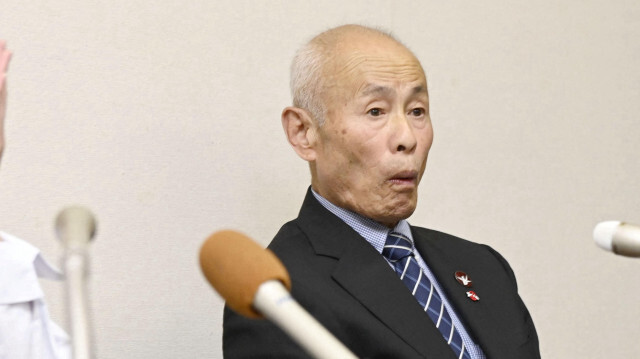
'In Gaza, bleeding children are being held (by their parents). It's like in Japan 80 years ago,' says Toshiyuki Mimaki, co-chair of Nihon Hidankyo, atomic bomb survivors group
The situation with children in the Gaza Strip is similar to Japan's, after nuclear bombs struck at the end of World War II, said Toshiyuki Mimaki, co-chair of Nihon Hidankyo, a Nobel Peace Prize winning group of Hiroshima and Nagasaki atomic bomb survivors.
“In Gaza, bleeding children are being held (by their parents). It's like in Japan 80 years ago,” Mimaki said at a news conference in Tokyo. “Children in Hiroshima and Nagasaki lost their fathers in the war and their mothers in the bombings. They became orphans.”
"The people are wishing for peace. But politicians insist on waging war, saying, 'We won't stop until we win.' I think this true for Russia and Israel, and I always wonder whether the power of the United Nations couldn't put a stop to it," said Mimaki.
He also warned that nuclear weapons do not bring peace. “It has been said that because of nuclear weapons, the world maintains peace. But nuclear weapons can be used by terrorists,” he said.
“If Russia uses them against Ukraine, or Israel against Gaza, it won't stop there.”
Mimaki was 3 years old when the atomic bomb was dropped on Hiroshima on Aug. 6, 1945, killing 140,000 victims.
Three days later, another bomb hit Nagasaki, killing an additional 70,000. Japan surrendered Aug.t 15, 1945, ending World War II.
This Nobel Peace Prize for 2024 was awarded to Nihon Hidankyo, a grassroots movement representing survivors of the 1945 atomic bombings of Hiroshima and Nagasaki, known as Hibakusha.
Nihon Hidankyo, founded in 1956, has been a voice for atomic bomb survivors, providing testimony of the horrors of nuclear warfare and advocating for the total abolition of nuclear weapons.

